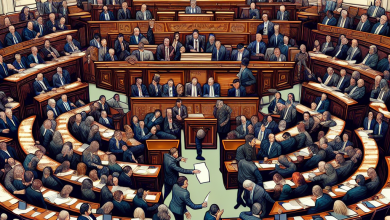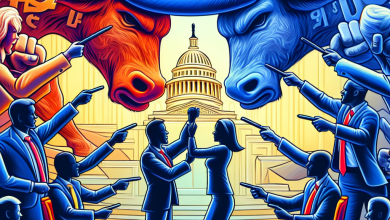Republicans Forge Ahead with Crypto Legislation Despite Democratic Opposition
Overview
The U.S. Congress is currently embroiled in a heated debate over the regulation of cryptocurrencies, with top Democrats clashing against Republican-led legislation slated for discussion this week. House Financial Services Committee ranking member Maxine Waters, along with colleague Stephen Lynch, have raised concerns regarding the proposed bills, citing a lack of essential consumer protections and potential threats to the U.S. financial system.
Waters expressed her apprehension, stating that the legislation could expose the financial system to new vulnerabilities and criticized Republicans for fast-tracking what she deemed as a risky package of crypto laws. The bills in question include the GENIUS Act, aimed at regulating payment stablecoins, the CLARITY Act focusing on digital asset market structure, and the Anti-CBDC Surveillance State Act, seeking to deter the development of a U.S. government-issued digital currency.
While Republicans hold a slight majority in the House, the opposition from Democrats casts doubt on the bills’ chances of passing. Congressman Lynch accused his Republican counterparts of favoring the interests of the crypto industry over safeguarding consumers, expressing concerns about the potential for abuse within the crypto space.
The debate over the proposed legislation has also been complicated by former President Trump’s ties to the crypto sector. Recent reports suggest that Trump’s personal wealth has surged by $620 million, largely due to investments in crypto-related ventures, such as World Liberty Financial. This has raised questions about the intersection of political influence and financial gains in the crypto realm.
As the political clash over cryptocurrency regulation intensifies, the outcome of this legislative battle remains uncertain. The concerns raised by Democrats regarding consumer protection, national security, and oversight reflect the complexity of regulating a rapidly evolving industry. The intersection of politics and cryptocurrency continues to be a contentious issue, highlighting the need for comprehensive and balanced regulatory frameworks to govern this burgeoning sector.

